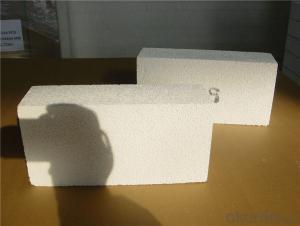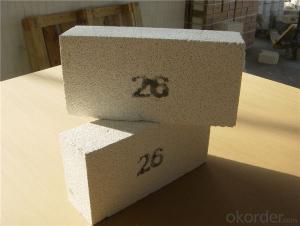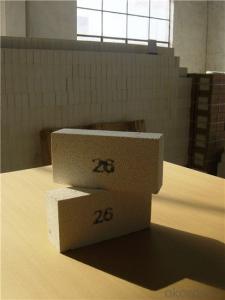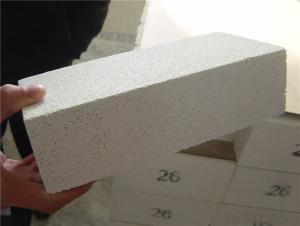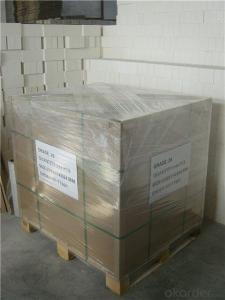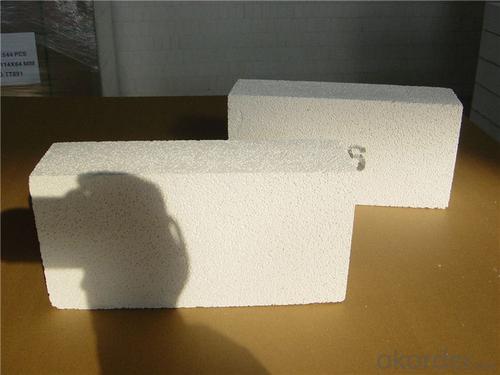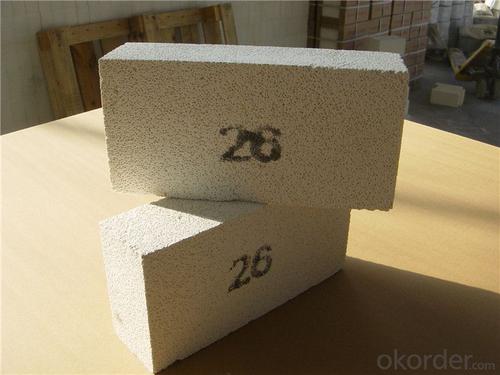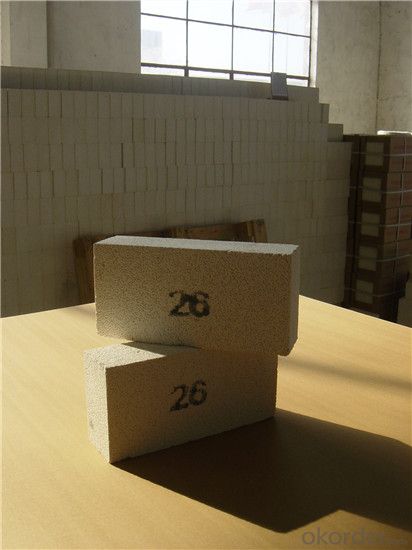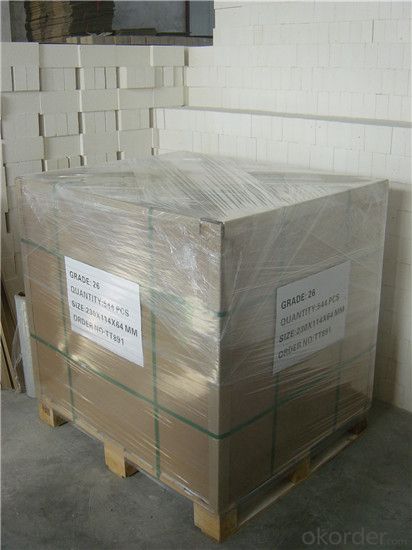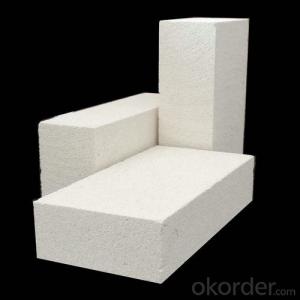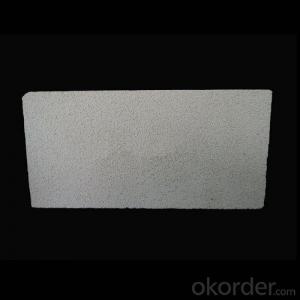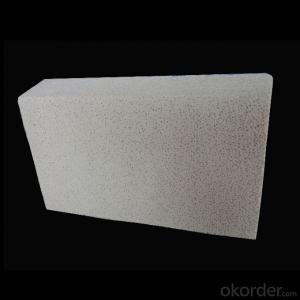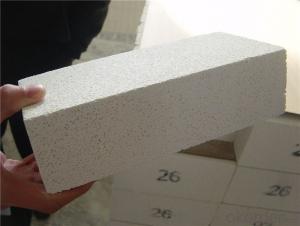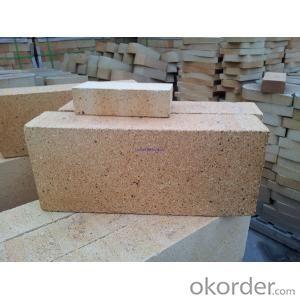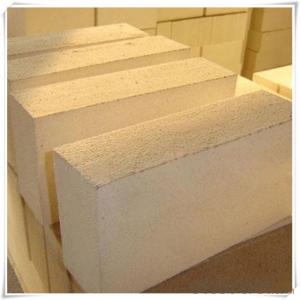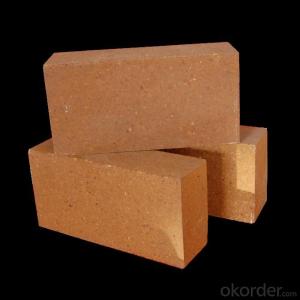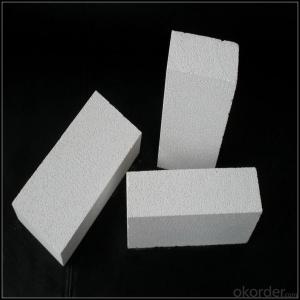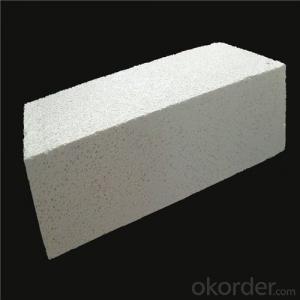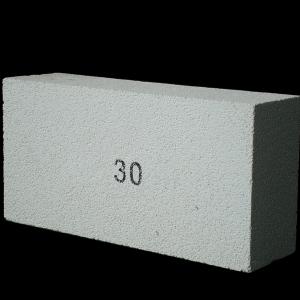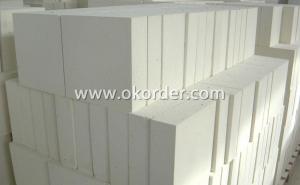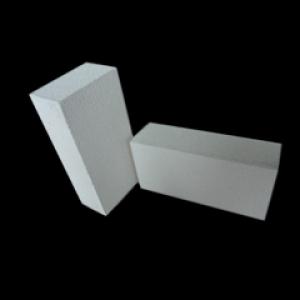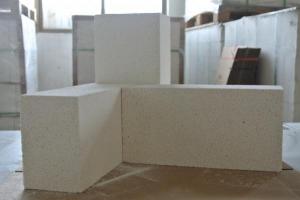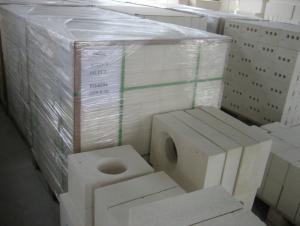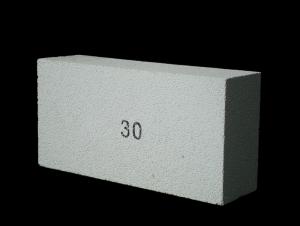Insulating Fire Brick with Excellent Thermal Insulation Performance AL-38 for Aluminium Industry
- Loading Port:
- Shanghai
- Payment Terms:
- TT OR LC
- Min Order Qty:
- 1 m.t.
- Supply Capability:
- 1000 m.t./month
OKorder Service Pledge
OKorder Financial Service
You Might Also Like
Thermal Insulation Fire Clay Brick
Refractory brick is a block of refractory ceramic material used in lining furnaces, kilns, fireboxes, and fireplaces.
We provide high quality Refractory Fire Bricks that are used on wide range in the various industries like Cement, Glass and Steel. Refractory Fire Bricks are provided as per the quantity and specifications required by the customers. We provide an extensive range of Refractory Fire Bricks at reasonable prices that depend upon the quantity ordered.
Application
Insulating Fire Brick are used for the lining of converter, alternating current arc furnace, direct Current arc furnace and the ladle slag line, etc.
Company Advantage
(1)Long Insulating Fire Brick manufacture history: 25 years manufacturer
(2)Advanced equipment
(3)Diversification of production standards: ISO ANSI FEPA JIS ASTM
(4)Flexible payment: T/T L/C D/P D/A
(5)Professional marketing team and after-sale service
Insulating Fire Brick main feature:
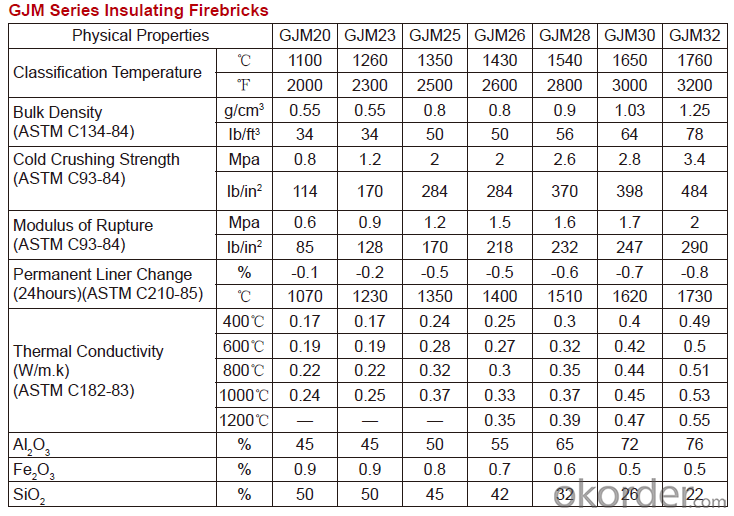
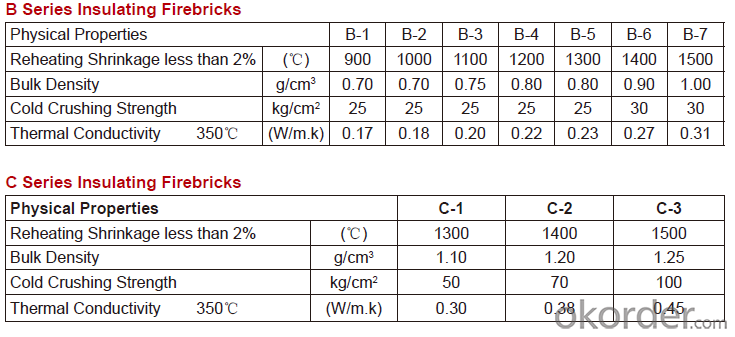
Equipment
1 unit of Ceramic Abrasive (SG Abrasive) pilot production line
2 units of Compact grain Abrasive pilot production lines
1 unit of high-end coated abrasives (abrasive cloth) production line
2 units of Boron Carbide production lines
3 large flexible crushing and sieving lines for grit production lines
6 units of 5000KVA-10000KVA dumping type electric arc furnaces for Brown Fused Alumina fusion
Q1 What’s the transport method?
A1 FCL delivery goods with wooden pallet or wooden case by sea; If LCL delivery, must with wooden case; Sometimes need open top, flat rack or bulk cargo.
Q2 What’s the required payment term?
A2 Generally 30% TT as the prepayment, 70% TT before delivery. If need, 100% Irrevocable Letter of Credit or negotiation.
Q3 Which country are our products exported to?
A3 Apart from entire Chinese market, the US, Russia, Japan, Korea, Australia and some Southeast Asian Nations.
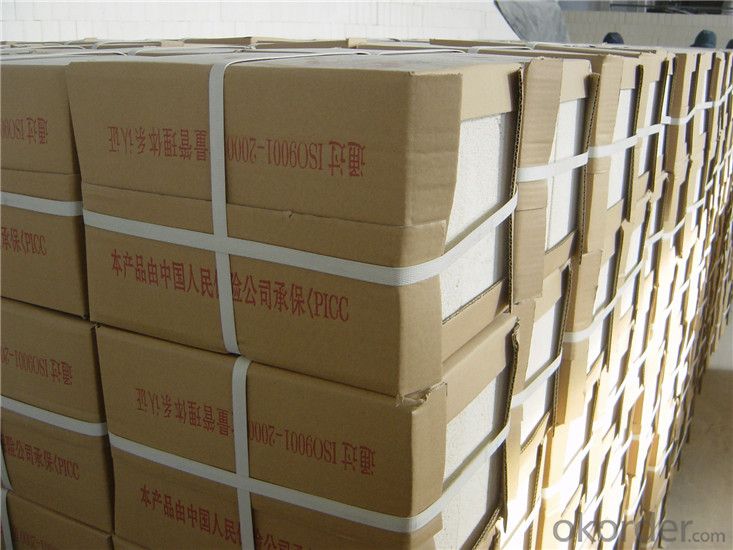
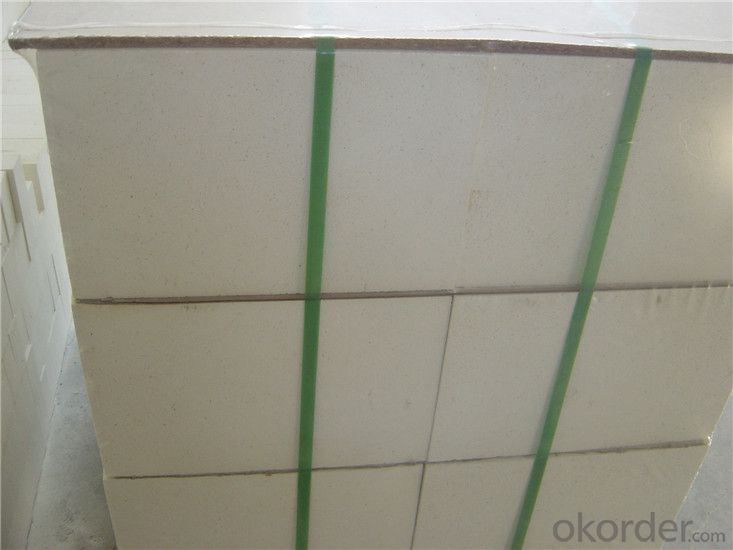
- Q: Are insulating fire bricks resistant to thermal expansion or contraction?
- Yes, insulating fire bricks are resistant to thermal expansion and contraction. These bricks are made of materials that have low thermal conductivity, allowing them to withstand high temperatures without undergoing significant expansion or contraction. This property makes them ideal for applications where thermal stability and insulation are required, such as in kilns, furnaces, and other high-temperature environments.
- Q: Can insulating fire bricks be used as insulation in walls and roofs?
- Yes, insulating fire bricks can be used as insulation in walls and roofs. Insulating fire bricks are made from lightweight materials that have excellent thermal insulation properties. They have low thermal conductivity, which means they can effectively reduce heat transfer through walls and roofs. This makes them a suitable choice for insulating buildings and improving energy efficiency. Additionally, insulating fire bricks are durable and fire-resistant, making them a safe option for insulation. However, it is important to note that insulating fire bricks are typically used in high-temperature applications such as furnaces and kilns, so they may not be the most cost-effective or practical choice for all wall and roof insulation needs. Other insulation materials designed specifically for building applications may be more suitable in terms of cost, ease of installation, and overall performance.
- Q: Can insulating fire bricks be used in refractory mortar?
- Yes, insulating fire bricks can indeed be used in refractory mortar. Insulating fire bricks are lightweight and have low thermal conductivity, which makes them ideal for applications where heat insulation is required, such as in kilns, furnaces, and other high-temperature environments. Refractory mortar, on the other hand, is specifically designed to withstand high temperatures and provide a strong bond between fire bricks or other refractory materials. By using insulating fire bricks in refractory mortar, you can achieve both heat insulation and structural integrity in your application.
- Q: What is the typical cost of insulating fire bricks?
- The typical cost of insulating fire bricks can vary depending on several factors such as the size, quality, and quantity needed. On average, you can expect to pay anywhere between $2 to $10 per brick. However, keep in mind that this is just a general range, and prices can be higher or lower depending on where you purchase them from and the specific requirements of your project. It is always a good idea to compare prices from different suppliers to ensure you are getting the best deal.
- Q: Are insulating fire bricks resistant to warping?
- Yes, insulating fire bricks are resistant to warping. They are specifically designed to have high thermal stability and low thermal conductivity, which helps to prevent warping even under high temperatures.
- Q: Can insulating fire bricks be used in rocket stoves?
- Insulating fire bricks are indeed suitable for use in rocket stoves. Their high insulation properties make them a popular choice. These bricks are composed of lightweight refractory materials, such as silica, which have low thermal conductivity. As a result, they can endure high temperatures while minimizing heat loss. This makes them an ideal option for rocket stoves. Rocket stoves are designed to burn biomass fuel, like wood or charcoal, efficiently. They do this by creating a combustion chamber with a vertical chimney. Insulating fire bricks can be used to construct the combustion chamber and line the chimney. This ensures that the heat generated by the fire is effectively contained and directed towards the cooking surface. Using insulating fire bricks allows rocket stoves to achieve higher temperatures and maintain them for longer periods. This leads to more efficient and effective cooking, as well as reduced fuel consumption. Furthermore, the insulating properties of these bricks also help protect the surrounding environment from excessive heat, reducing the risk of accidental burns or fires. In conclusion, insulating fire bricks are a suitable choice for rocket stoves due to their ability to withstand high temperatures, minimize heat loss, and improve cooking efficiency.
- Q: Are insulating fire bricks resistant to phosphorus pentoxide?
- In general, insulating fire bricks lack resistance against phosphorus pentoxide. This highly reactive compound has the ability to corrode and deteriorate various materials, including insulating fire bricks. Therefore, it is crucial to contemplate alternative materials or apply protective coatings when specific applications require resistance against phosphorus pentoxide.
- Q: Do insulating fire bricks emit any harmful gases when heated?
- No, insulating fire bricks do not emit any harmful gases when heated. They are specifically designed to have excellent thermal insulation properties without releasing any harmful emissions.
- Q: How thick are insulating fire bricks?
- Insulating fire bricks typically range in thickness from 1 to 3 inches.
- Q: Can insulating fire bricks be used in the construction of steam boilers?
- Yes, insulating fire bricks can be used in the construction of steam boilers. They are designed to have high thermal resistance, low heat conductivity, and excellent insulation properties, which make them suitable for use in steam boilers. Insulating fire bricks help to retain heat efficiently, reduce energy loss, and improve the overall efficiency of the boiler system.
Send your message to us
Insulating Fire Brick with Excellent Thermal Insulation Performance AL-38 for Aluminium Industry
- Loading Port:
- Shanghai
- Payment Terms:
- TT OR LC
- Min Order Qty:
- 1 m.t.
- Supply Capability:
- 1000 m.t./month
OKorder Service Pledge
OKorder Financial Service
Similar products
Hot products
Hot Searches
Related keywords
